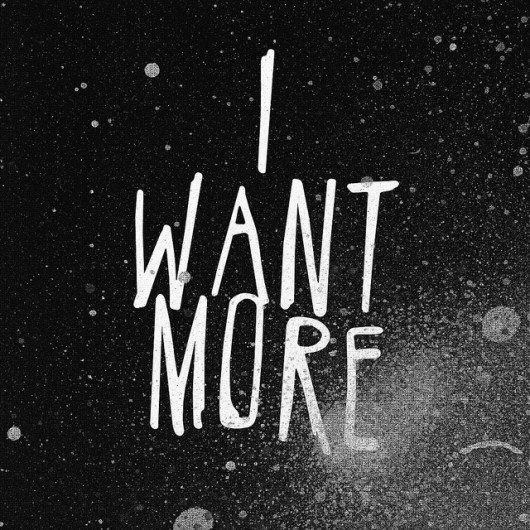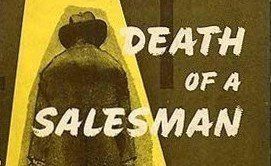Ten Tips for Convincing the Buyer to Pay More
How to get the price you want.

Every salesperson eventually must confront the following situation:
- You want the deal badly.
- You need the business.
- You've been suspecting that your price is too high to begin with.
So what do you do? You lower your price rather than negotiate. Many salespeople are afraid to stand by their price structure because of a single mistaken assumption: "If I refuse to negotiate my price, I'll lose all my customers." The reality is just the opposite. If you aren't prepared to defend your price, your customers will lose respect for you.
Here are ten tips that will help you to negotiate the price you deserve:
| Tip Number One: You are entitled to reasonable compensation. |
| Just as your doctor, your accountant, and your plumber are entitled to a reasonable compensation for their services, you are entitled to a reasonable compensation for your product or service. What is reasonable? Whatever you can convince your buyer that your product or service is worth. The operative principle here is value. No buyer will begrudge you a price that is reasonable relative to the perceived value of the product or service. |
| Tip Number Two: Don't sell yourself short! |
| Do you believe that what you are selling is worth the price? If the answer is yes, and I certainly hope it is, then you should expect to receive a worthy price. If you lack confidence about your product or service, buyers will become aware of your doubts. Have you noticed the range of prices for similar products and services? It fascinates me when some salespeople are able to bring in the order at a premium price while others can't seem to get by without discounting. What accounts for this? One salesperson gets up in the morning and says, "My product is great and my customers are happy to pay my price!" Another salesperson gets up and says, "My product is great, but the buyer will never pay me such-and-such!" Don't sell yourself short. |
| Tip Number Three: Don't apologize! |
| Once you have established the value of your product or service, present your price with confidence. Never apologize for your price. If you believe your price is correct, just assume that your customers will agree |
| Tip Number Four: Always be willing to walk away! |
| I call this Brodow's Law. You must be prepared to say "Next!" or your customers will sense your uncertainty. The willingness to walk away from a sale comes from having options. It is crucial to have other potential sales in the line-up. When you know that your sales career doesn't hinge on this one deal, you can exude confidence. And buyers will bow to confidence. |
| Tip Number Five: How to justify your price. |
| Once you have decided on your price, you must provide reasonable justification so your buyer will say, "Okay, that makes sense. I can accept that." Here is your justification: |
| 1. Give your price legitimacy: "My price is reasonable for the marketplace. This is the going price for this product or service." If your buyers are doing their homework, they will know you are telling the truth. And remember you are entitled to a reasonable compensation. |
||||
| 2. Focus on the value of your product or service, not on the price. Buyers will pay for value. Sell features and benefits. |
||||
| 3. Show them that you'd like to help them out, but you can't because you can't lower your price for one customer without lowering your price for everybody. Tip Number Six: When to negotiate your price. Obviously, there are exceptions. You want to leave yourself the option of negotiating a lower price if it is in your best interest to do so. The operative principle here is called "saving face." In other words, you will lower your price only if you can save face, i.e., maintain the integrity of your basic pricing structure. So you tell your customer, "I accept a lower price only under the following circumstances ..." What are those circumstances? You might consider offering a discount if the customer will buy more than one, or if the merchandise is flawed. I recently gave a keynote speech at a reduced fee for a client who had already booked six seminars. My face-saver: the multiple bookings. (As a result of the interest generated by the keynote, the client booked another ten seminars.)
Tip Number Nine: How to deal with three typical buyer tactics. 1. The Flinch: The buyer says, "Your price is what!" and they start choking. Your response: Silence. They just wanted to see if they could get a reaction out of you. Don't react. It's a test. Be persistent. Repeat your price and justify it as in Tip Number Five. 2. The Squeeze: The buyer tells you, "You have to do better!" or "I can get it for less." Your response: a. Sell your unique qualifications. Take the focus off of the price.Get them to agree that yours is the one they want, and that the price is only a technicality. If they really want yours, they will find a way to pay for it. Remember my story of the competitor who offered to speak for nothing. Just because the buyer has a potential vendor with a lower price doesn't mean that they want that vendor. b. Tie a string. Offer to reduce your price only in return for additional volume, or a commitment to purchase other items at full price. 3. The Sob Story: The cry, "All I have in my budget is..." or "All we can afford is..." Your response: a. Don't budge. Call their bluff. They may be testing to see how firm your price is. b. Ask, "Are there any other budgets you can draw from?" Their budget for your product or service may not be the only one available to them. Tip Number Ten: Leave the customer feeling satisfied. Whatever you do, remember that your objective is to create a satisfied customer. How to satisfy your customers without lowering your price: 1. Be a good listener. Allow them to get their gripes about your price off their chest. They will thank you for being patient with them. 2. Help them to accept your fee by providing reasonable justification. 3. Sell your unique strengths. Believe in yourself. The major obstacle that prevents salespeople
from receiving the price they want is the fear of rejection. One way of dealing
with this fear is to lower your price. A better way is to overcome your fear by
schooling yourself in assertive negotiation techniques. When you do it right,
both you and your customer will feel a sense of satisfaction. Ultimately, your
belief in yourself and your product or service will be your best weapon. Your
confidence will be rewarded. Ed Brodow is a keynote speaker and author of Negotiation Boot Camp: How to Resolve Conflict, Satisfy Customers, and Make Better Deals. For more information on his presentations, call 831-372-7270 or e-mail ed@brodow.com. Copyright © 2018 Ed Brodow. All rights reserved. |










